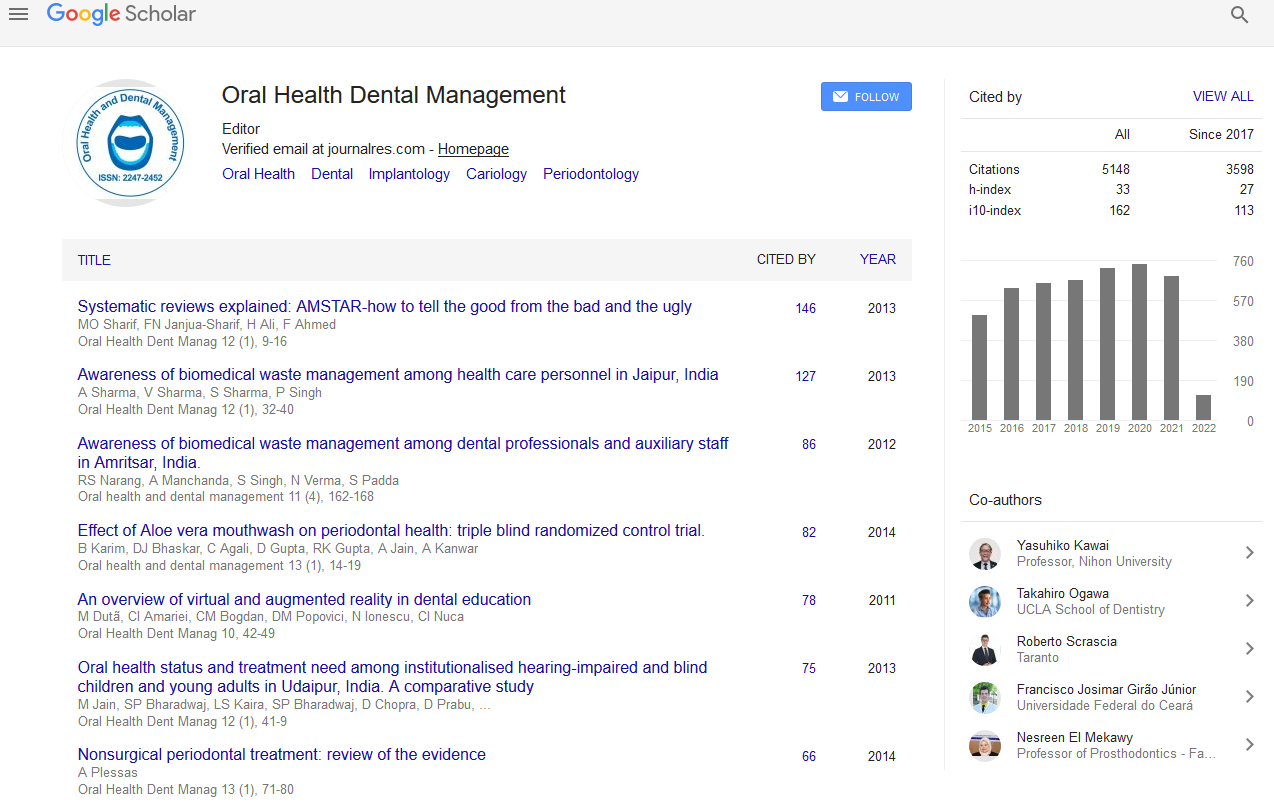Indexed In
- The Global Impact Factor (GIF)
- CiteFactor
- Electronic Journals Library
- RefSeek
- Hamdard University
- EBSCO A-Z
- Virtual Library of Biology (vifabio)
- International committee of medical journals editors (ICMJE)
- Google Scholar
Useful Links
Share This Page
Journal Flyer

Open Access Journals
- Agri and Aquaculture
- Biochemistry
- Bioinformatics & Systems Biology
- Business & Management
- Chemistry
- Clinical Sciences
- Engineering
- Food & Nutrition
- General Science
- Genetics & Molecular Biology
- Immunology & Microbiology
- Medical Sciences
- Neuroscience & Psychology
- Nursing & Health Care
- Pharmaceutical Sciences
Non-surgical endodontic treatment of teeth associated with large periapical lesion: A case series
18th Asia-Pacific Dental and Oral Care Congress
November 21-23, 2016 Melbourne, Australia
Sanjeev Kunhappan
Government Dental College, Raipur, India
Scientific Tracks Abstracts: Oral Health Dent Manag
Abstract:
A periapical lesion is formed within an area of existing apical periodontitis, the foci of infection being the degenerating pulpal tissues within the root canal system. This pulpal degeneration is caused by the microbes that enter the pulp chamber from oral cavity. These periapical lesion regresses as soon as the microbial etiology present within the root canal is removed by nonsurgical root canal therapy. Mere surgical removal of the periapical lesion, without proper root canal disinfection and three dimensional obturation is not sufficient for its complete healing. Non-surgical endodontic treatment using triple antibiotic paste (TAP) as intra-canal medicament to disinfect the root canal system followed by mineral trioxide aggregate (MTA) for three dimensional obturation offers a high success rate in the healing of large periapical lesions. These clinical cases highlight the healing of large periapical lesions with conservative non-surgical endodontic treatment, followed-up over a period of 1-2 years.
Biography :
Sanjeev Kunhappan has completed his BDS from Devi Ahilya University, Indore and MDS in Conservative Dentistry & Endodontics from Ayush & Health Science University, Raipur, India. He is working as Lecturer in the Department of Conservative Dentistry & Endodontics, Government Dental College, Raipur, Chhattisgarh, India. He has published more than 10 papers in reputed journals and has been presenting scientific papers in various national conferences. His interest is mainly towards non-surgical endodontics.
Email: skunhappan@gmail.com

